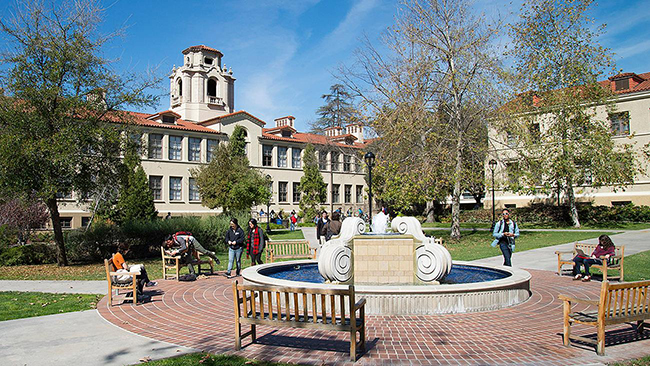Budget group to meet in January, will be closed to public, media
The Claremont City Council announced Tuesday it intends to keep the working group tasked with making budget recommendations closed to the public and the media.
Applicants represent a mix of residency in Claremont—one has been here just six months, while others have lived here for decades. Of the 21 residents who applied, councilmembers Jennifer Stark and Ed Reece, the ad hoc advisors, will select approximately five members, City Manager Tara Schultz said.
Interviews will be conducted next week, with Ms. Stark, Mr. Reece, city finance director Adam Pirrie and city manager Tara Schultz leading the panel.
“Because it’s not my committee, I’m not comfortable talking about what [the advisors] are looking for,” Ms. Schultz said, “but we want people who are open-minded, who want to learn about the budget process and who will listen to our recommendations and give us feedback.”
Applicants are Devo Anderson, Lilian Araiza-Saita, Jim Belna, Russ Binder, Edward Broomfield, David Burgdorf, David Carter, Pamela Casey Nagler, Richard Chute, former police chief Paul Cooper, Parker Emerson, Richard Fass, Hugo Gutierrez, Paul Held, Jorge Hernandez, Donna Lowe, Marc Merritt, Pat O’Malley, Iraj Rahmim, Sonja Stump and Caroline Velarde.
The group will have its first meeting January 8. The decision to close the meetings came up during earlier talks between Ms. Stark, Mr. Reece and city staff, according to the city manager.
As Ms. Stark explained at Tuesday’s council meeting, this is a “non-Brown Acted working group that will be privy to confidential personnel matters.”
Further, as Ms. Schultz emphasized in a phone interview Wednesday, the committee is identified as ad hoc, because it’s given a specific task that, once complete, will disband.
Temporary advisory committees can be made private at the discretion of a council or city staff, as long as the group is made up of less than a quorum (in Claremont’s case, three members of the council).
Whether minutes of the meetings will be produced hasn’t been discussed, Ms. Schultz said. But the group’s members will be urged to not go to the press or to take the discussion to social media.
“This is potentially people’s livelihood, so we need to be careful,” she said. “The one thing I hope people will remember is that we haven’t done this before. We’re taking steps to include outside people in the budget process.”
A call Wednesday from the COURIER to Terry Franck of Californians Aware was not returned before press time. CalAware is a nonprofit rights group that aims to foster compliance with and understanding of public meeting laws.
The city holds its community budget workshop every March, however, that meeting will be pushed to May next year to allow the group to “get a full picture of the budget,” Ms. Schultz said. The committee will then present a first draft of its recommendations, with time for public comment before the finance director presents the 2020 budget to the council in June.
This isn’t the first time a council has closed an ad hoc committee to the public, Ms. Schultz said. In July 2011, a similar ad hoc committee on economic sustainability—led by then councilmember Larry Schroeder—was formed in response to concerns about the city’s long-term budget problems.
That committee made several recommendations to the council. At the top of the list was for the city to end paying for staff’s employee contribution portion to PERS. The committee said at the time that it could be done immediately or as a phased approach over four years, saving the city more than $3 million over that time period.
Since the 2011 recommendation, some changes have taken place. One is that group members were divided into two categories—classic members and new members—with different CalPERS contributions.
Miscellaneous tier one and two employees pay 8 and 7 percent, respectively, according to Mr. Pirrie. Miscellaneous employees included under the Public Employees’ Pension Reform Act (PEPRA)—employees hired on or after January 1, 2013—contribute 5.75 percent or half the normal cost, whichever is greater.
Safety employees identified under tier one and two pay 9 percent into PERS, while safety PEPRA employees pay 12 percent or half the normal cost.
For the new budget committee, maintaining the privacy of employees and contracts is of utmost importance to city leaders.
“If we’re talking about cutting a contract or eliminating services, there’s a potential that might mean eliminating personnel that go with that. That’s a big deal,” Ms. Schultz said.
After the budget workshop in May, Ms. Schultz assures residents there will be time to make recommendations to be added to the final report.
“But people can make comments at any time, on any subject,” the city manager said. “I don’t want people to feel they can’t comment. We always try to be responsive, it doesn’t matter what the topic is.”
—Kathryn Dunn
editor@claremont-courier.com










0 Comments